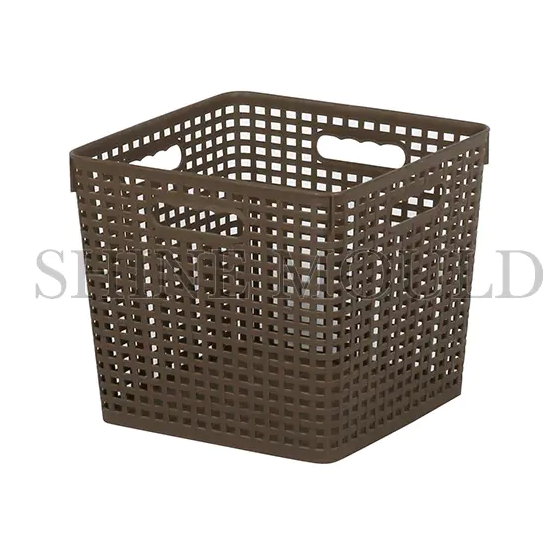Basket moulds are essential components used in various industries, including packaging, material handling, and consumer goods production. From a manufacturer’s viewpoint, creating basket moulds involves careful consideration of material selection, design precision, and production methods to meet diverse client requirements.
One important aspect is choosing appropriate materials for basket moulds. Metals such as aluminum and steel are frequently used due to their strength, stability, and resistance to wear. The selection depends on the specific application, environment, and expected usage frequency. For instance, aluminium offers a good balance of lightweight and durability, while steel provides additional toughness for more demanding tasks.
The manufacturing process involves several steps to ensure the basket mould meets dimensional and functional specifications. Computer-aided design (CAD) tools assist in developing accurate mould shapes and features, facilitating consistent production quality. Precision machining or casting methods are then applied to transform raw materials into the final mould form. Quality control measures during and after manufacturing help detect any deviations and maintain product standards.
Design considerations are another vital factor from the manufacturer’s side. The mould must accommodate the intended product shape and size while allowing for ease of release after production. Incorporating structural reinforcements such as ribs or thicker sections can improve strength and longevity, reducing the chance of deformation under operational pressures.
Manufacturers also focus on surface treatment to improve the mould’s performance and maintenance. Treatments such as anodizing or powder coating provide corrosion resistance, which is important in environments with moisture or chemical exposure. Smooth surface finishes contribute to easier cleaning and better release properties, which benefits users by reducing downtime and maintenance effort.
Customization options play a significant role in manufacturing basket moulds. Different industries have unique requirements, and flexible manufacturing processes allow adjustments in mould size, shape, and features to meet these demands. This adaptability helps manufacturers support clients in various sectors, from food packaging to industrial applications.
Production efficiency is also a key focus. Streamlining manufacturing workflows, optimizing resource use, and applying advanced technologies contribute to cost-effective mould production. Consistent delivery times and reliable quality contribute to building trust with clients, making manufacturers a dependable part of the supply chain.
In conclusion, from the manufacturer’s perspective, producing basket moulds requires attention to material selection, design precision, surface treatment, and customization. These factors help create moulds that function well across different industries and applications. Through continuous improvement in manufacturing processes, basket mould makers aim to provide reliable and adaptable solutions that meet diverse production needs.
